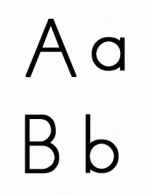“Indeed, I do not think I lit a fire myself before
I was eighteen years old. It was only when I lived alone that I
became master of my own hearth.
(Bachelard, The Psychoanalysis of Fire; 9)
Like a drop of rain, my mantra forms and orb
iiiiiiiiiiiiiiiyyyyyyaaaaaaaammmmmm
It feels like my mouth forms a bead with each repetition
Each drop a synapses
My mind finds meaning in only a sound
In this dim stairway I mind tingling sensation of sound
Have I become this sound if I am what my mind experiences?
Can I stay like this forever?
I wonder if people could get addicting to meditating,
and left my trance on that thought.
Like beautiful tears from melancholy god’s
The glass oozes from the fire’s touch
Blushing a bright orangey red
at each lick of flame
Watching all this sand and flame brings
of course, only one thought to my mind,
Am I the sand or the flame?
Are you the blistering heat I bend and droop away from?
To form something beautiful after the burns?
Or am I your flame,
shaping you to your best interest
without a thought to my own fuel source…

